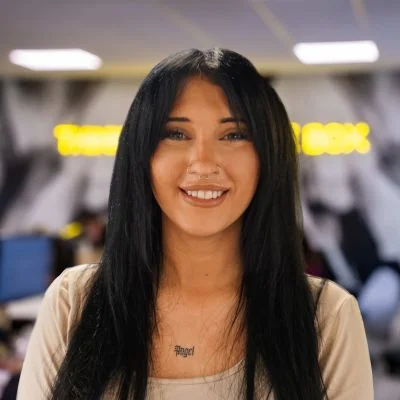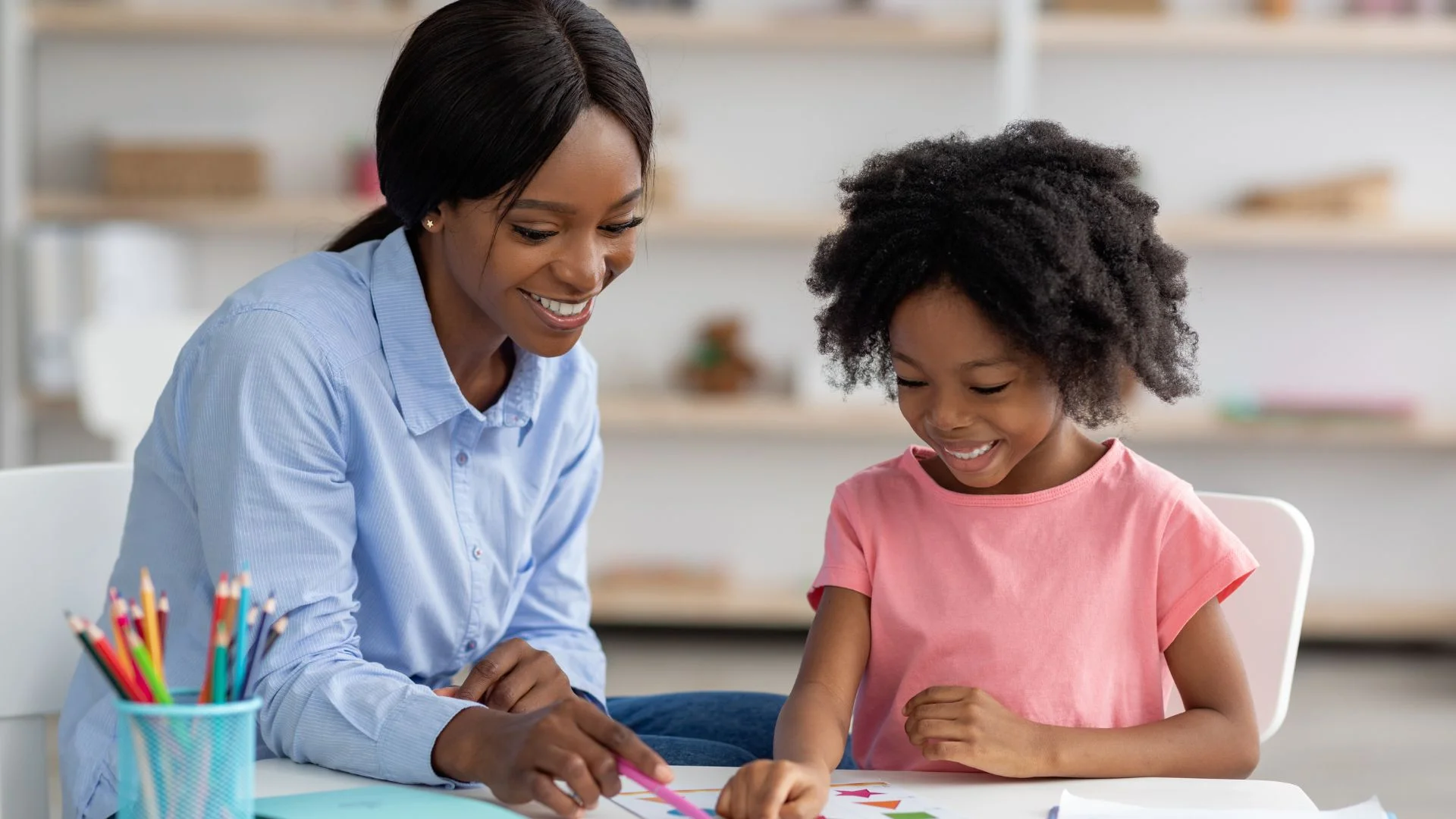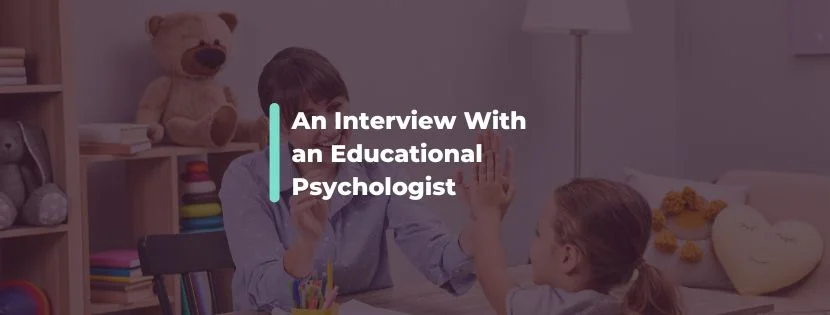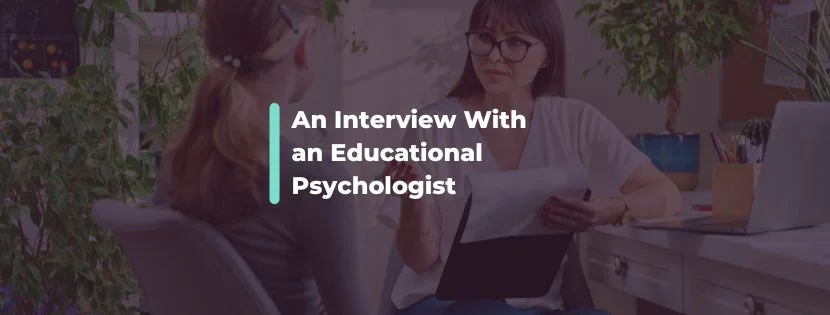"A Little Goes A Long Way." An Interview With A Child And Educational Psychologist
13 Oct, 20251-2 minutes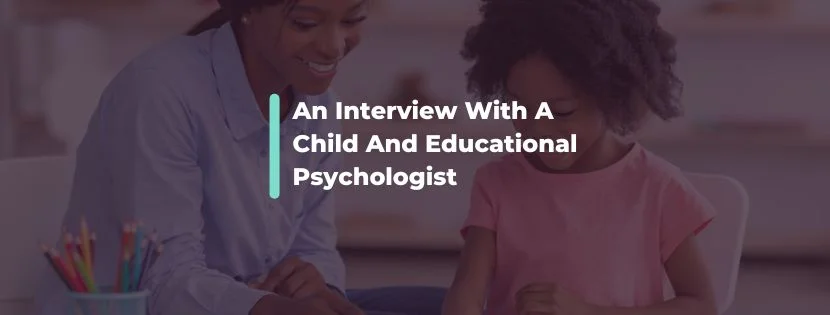
In this blog, you will learn:
- How a newly qualified Educational Psychologist empowers parents, carers and educators to support children’s development.
- How a newly qualified Educational Psychologist uses creative approaches to make a meaningful impact on children and families.
- About the growing need for specialist provision and a more culturally responsive approach in education.
- How to find and apply for the best Educational Psychologist jobs.
According to research by Carolyn Watson, 74% of Educational Psychologists feel good about helping others and 70% are happy with their career choice. Educational Psychologists play a vital role in schools, local authorities and the wider education system, improving not only children’s learning outcomes but also their mental health and wellbeing.
For our latest industry interview, we spoke to a newly qualified Child and Educational Psychologist to gain their perspective. Although only a year into her role, she is already passionate about empowering parents, carers and educators.
This Educational Psychologist is especially committed to creating positive change for children and young people with Special Educational Needs and Disabilities (SEND).
Tell us about the role of a Child and Educational Psychologist
The role of a Child and Educational Psychologist is nothing shy of typical. No day is the same though the days can consist of consulting with school staff and parents as well as observing and interacting with children. My role typically involves writing reports, providing training and carrying out some form of action research, as well as conducting assessments of development.
How did you know you wanted to train to become an Educational Psychologist?
Years ago, I wrote an affirmation in a journal which stated my name and my desired job title as if it were a current reality. Years later I am pleased and stunned that I have achieved exactly that.
My previous experiences working with children and young people with additional needs increased my curiosity about how to understand and support child development. I found myself in roles within learning support and speech therapy. I wanted to know more about the child and their context which being an Educational Psychologist encourages you to do.
I realised over time that I wanted to expand my ways of working beyond individual children to also support their families and systems of influence, as well as groups and organisations.
What type of education and training did you receive to be an Educational Psychologist?
I obtained an undergraduate degree in psychology and then went on to build my experience in school and healthcare settings with children.
My training included mandatory topics such as safeguarding to broader and more niche topics such as ‘Baby brains and attachment’, Makaton sign language and Steps to Feeding. With my first degree and additional experience I applied for the doctorate in Child and Educational Psychology and was offered a place (third time lucky).
What has been the most surprising aspect of your career as an Educational Psychologist?
Whilst I am still in the early stages of my career as an Educational Psychologist, the training experience provided ample opportunities to bring positive and necessary changes to the lives of young people in and out of education.
One of the most surprising aspects so far has been how the saying ‘ a little goes a long way’ has been proven from using specialist therapeutic skills such as active listening. I have been surprised at how positively impactful being an attentive and attuned practitioner is for some parents and carers who are doing their best to raise thriving children.
How has provision changed over the past 12 months and where do you see it heading in the future?
The need for specialist provision has increased and continues to do so. I see the education system heading in a direction where there is more alternative provision with specially trained staff members. I hope this becomes the norm so specialist needs can be better met widely and responsively.
I think that trauma-informed practice needs to be embedded into the curriculum as a cultural response to the trials many children and their families are facing at younger ages and greater stages of development.
This will impact the future of educational psychology as a responsive service at the systemic and organisational level, so those supporting, educating, and caring for the children are, in turn, supported.
What do you feel can be done to tackle the shortage of Educational Psychologists?
One major and centralised way for the shortage of Educational Psychologists to be tackled is for the government to provide continued funding and training.
When I applied for a role in educational psychology, competition was high as there were about ten applicants per space available. I believe this is why it took me three attempts to get a spot in my Child and Educational Psychology doctorate.
Though more training is not the sole answer, Educational Psychologists need to be protected in how they work and manage their workloads, so more can be offered than traditional assessments and reports.
The representation of Educational Psychologists also needs to be on the agenda, as the profession has a way to go in reflecting the multicultural community that we serve.
What do you find most fulfilling about your role? What’s your proudest career achievement so far?
I find so many parts of the role fulfilling, especially connecting with the children and young people. I love being able to meet them, adapt my communication style to suit their needs and appreciate the individuality of their views. Sometimes that means talking with the people who know them best, and other times it involves using creative ‘games’ as a form of assessment to get a clearer understanding of their strengths and needs.
My proudest moments were completing my 38,000-word thesis. I received a hug and a heartfelt 'thank you' from a parent who deeply appreciated my input with their child. They felt I had captured them accurately through my report writing.
Can you describe a time where you faced a challenging situation in your career and how you resolved it?
I encountered a challenging situation with a senior member of staff at a primary school, where discriminatory language was used during a consultation about a child from an ethnic minority background. The school’s application for statutory assessment included criminalising language that portrayed the child as a ‘threat’ to the community.
I was deeply saddened and shocked by this experience and brought it to supervision, where I was able to process it with the support of a professional.
While the situation remains unresolved, I was able to work through the difficult emotions and draw on my psychological training to reflect, reframe and engage with the school. This allowed me to help shift the focus toward understanding the child’s strengths and challenges as well as barriers to their progress.
What's the most valuable lesson you’ve learnt in your career so far?
I have learnt that there is no one type of Educational Psychologist and no singular way of practising as an Educational Psychologist. I am dismantling the ideology of perfection and accepting that the best Educational Psychologist is ‘good enough.’
A good Educational Psychologist adheres to competencies and continues to be open to the never-ending journey of learning and discovery in relation to child development and self-development.
What’s your vision for the future of educational psychology?
I hope educational psychology becomes a more accessible profession to diverse populations. I would also like to see the sector become more culturally responsive by being curious about historical theories that may not be relevant to the function of contemporary society.
I hope educational psychology can be shared in bite-sized, relatable forms. This would empower parents, carers, and education staff to use their existing skills to enhance pupils’ learning, social, and emotional experiences.
What advice would you give to people looking to pursue a career in educational psychology?
- Do your research on the role. Learn and study the steps to becoming and work your way through the stages – e.g. building relevant experience with children and young people.
- Talk to people in the field. There is no such thing as a silly question, only the one not asked.
- Keep a record of the roles you occupy, what you learn and how this relates to psychology. Building these early triangulation skills are integral to training and practice.
Anything you would like to add?
The journey to becoming an Educational Psychologist has been the most incredible, challenging and life-changing experience. The journey does not end upon completion of the doctorate; that is only the beginning of discovering the kind of Educational Psychologist you want to be.
The world needs more Educational Psychologists who are passionate about creating positive change for future generations. We also need professionals who are committed to recognising and working to overcome barriers to both individual and collective progress. Keep calm and carry on!
Spencer Clarke Group educational psychology report 2025
As specialists in local authority SEND recruitment, we work alongside hundreds of Educational Psychologists throughout the UK and are mindful of the challenges they encounter as the sector evolves.
In the SCG Educational Psychology Workforce Insights Report 2025, we explore funding challenges, industry trends, policies and legislation, and the future of educational psychology.
Read the SCG Educational Psychology Workforce Insights Report 2025 here.
Educational Psychologist jobs
If you’re searching for your next Educational Psychologist job, why not take a look at the latest vacancies, or simply upload your CV to be notified when a relevant position becomes available.
Struggling to recruit Educational Psychologists?
As specialist local authority SEND recruiters, we support local authorities nationwide with their temporary, interim and permanent staffing needs.
If you’re struggling to recruit, we have exclusive access to some of the most experienced interim Educational Psychologists in the UK.
Simply contact Natalie Boaler on 01772 954200 to discover how we can help.
Share your experience
Every individual brings a unique set of experiences, thoughts, and insights to the table. We believe in giving a voice to a community of professionals to inspire positive change and champion reform in the healthcare sector.
If you work in the healthcare sector and would like to share your own personal and professional experiences, we’d love to hear from you. Perhaps you have a different perspective, could offer a fresh angle, or want to challenge assumptions.
Simply reach out to our Head of Content, Nicole Sherwood, to discuss a collaboration which makes your voice count.
Who is Spencer Clarke Group?
Established in 2017, we’re an award winning and progressive recruitment agency based in the heart of the North West. Our reputation is built on trust, expertise and an unwavering commitment to exceed expectations.
In 2025, Spencer Clarke Group was awarded Best Public/Third Sector Recruitment Agency and Best Temporary Recruitment Agency at the Recruiter Awards. In 2024, Spencer Clarke Group was also named Recruitment Agency of the Year.
